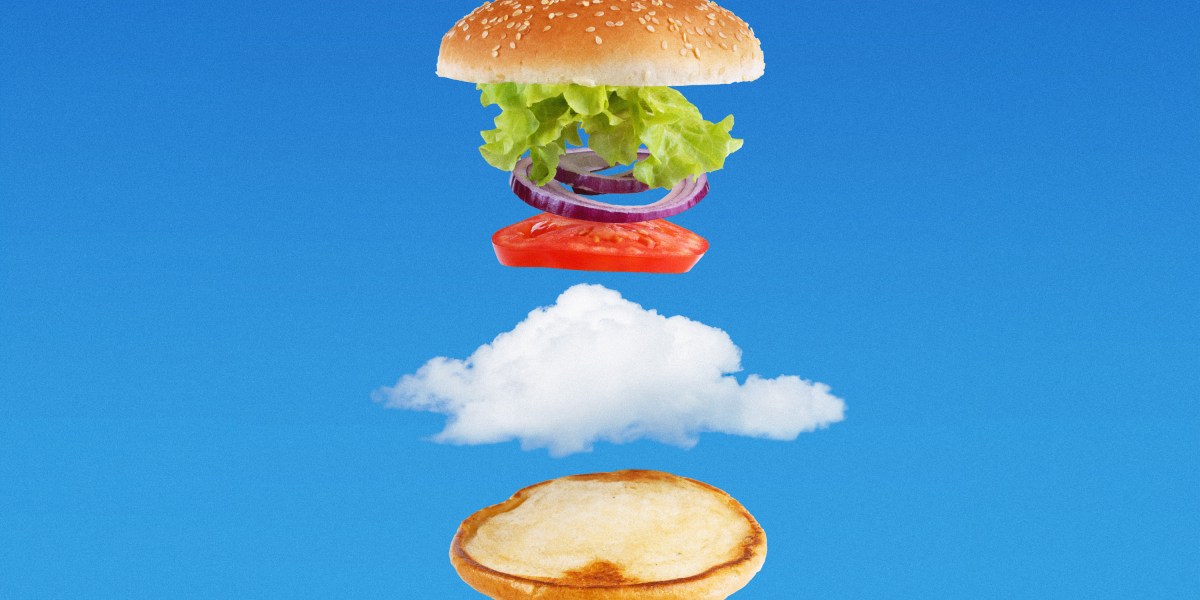A new crop of biotech startups are working on an alternative to alternative protein.
Some of these companies are focused on industrial animal feed, fish meal, and pet food—products with slimmer profit margins but less exacting consumers and fewer regulatory hurdles. Human food, however, is where the real money—and impact—is. That’s why several companies, like Dyson’s Air Protein, are focused on it. In 2023 Air Protein opened its first “air farm” in San Leandro, California, a hub for the commercial food production industry, and announced a strategic development agreement with one of the largest agricultural commodity traders in the world, ADM, to collaborate on research and development and build an even larger, commercial-scale plant. The company’s “Air Chicken” (which, to be clear, is not actual chicken) is slowly making its way toward grocery store shelves and dinner tables. But that’s only the beginning. Other companies are making progress at harnessing bacteria to spin air into protein, too—and someday soon, these microbial protein patties could be as common as veggie burgers.
An alternative to alternative proteins
The environmental case for microbial protein is clear enough; it’s a simple calculus of arable land, energy, and mouths to feed. The global demand for protein is already at an all-time high, and with the population expected to grow to 9.7 billion by 2050, traditional agriculture will have a hard time keeping up, especially as it battles climate change, soil degradation, and disease. A growing global middle class is expected to raise levels of meat consumption, but factory-farmed meat is one of the leading drivers of greenhouse-gas emissions. Although protein-rich alternatives like soy are far more sustainable, most of the soy grown in the world is destined for use as animal feed—not for human consumption.
In contrast, bacterial “crops” convert carbon dioxide directly into protein, in a process that uses much less land and water. Microbial protein “farms” could operate year-round anywhere renewable electricity is cheap—even in places like Chile’s Atacama Desert, where farming is nearly impossible. That would take the strain off agricultural land—and potentially even give us the chance to return it to the wild.
“We are liberating food production from the constraints of agriculture,” Juha-Pekka Pitkänen, cofounder and CTO of the Finnish startup Solar Foods, explained in a recent company video. In April 2024 Solar Foods opened a demonstration factory in Vantaa, a short train ride from the Helsinki airport. It’s here, at Factory 01, that the company hopes to produce enough of its goldenrod-yellow protein powder, Solein, to prove itself viable—some 160 metric tons a year.
Source: These companies are creating food out of thin air | MIT Technology Review
